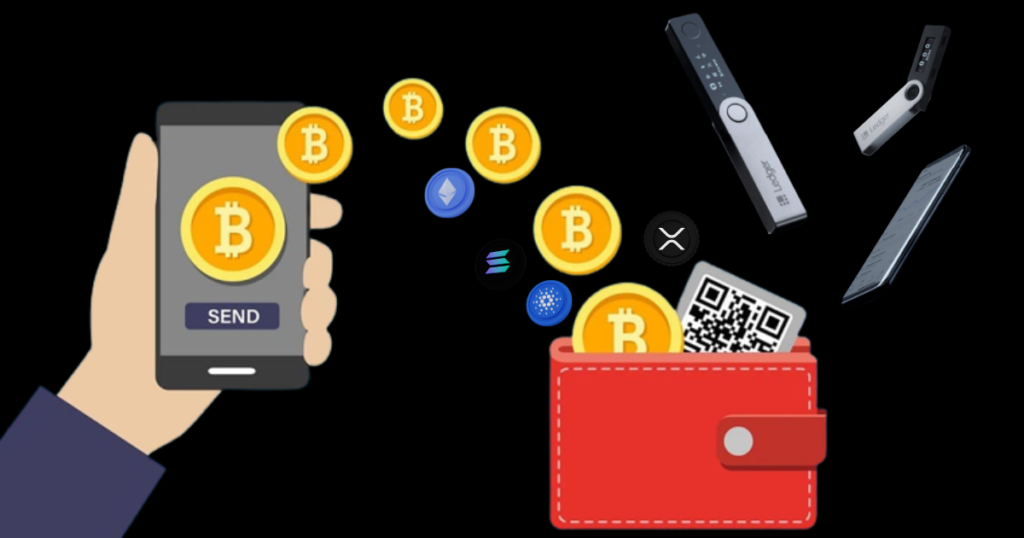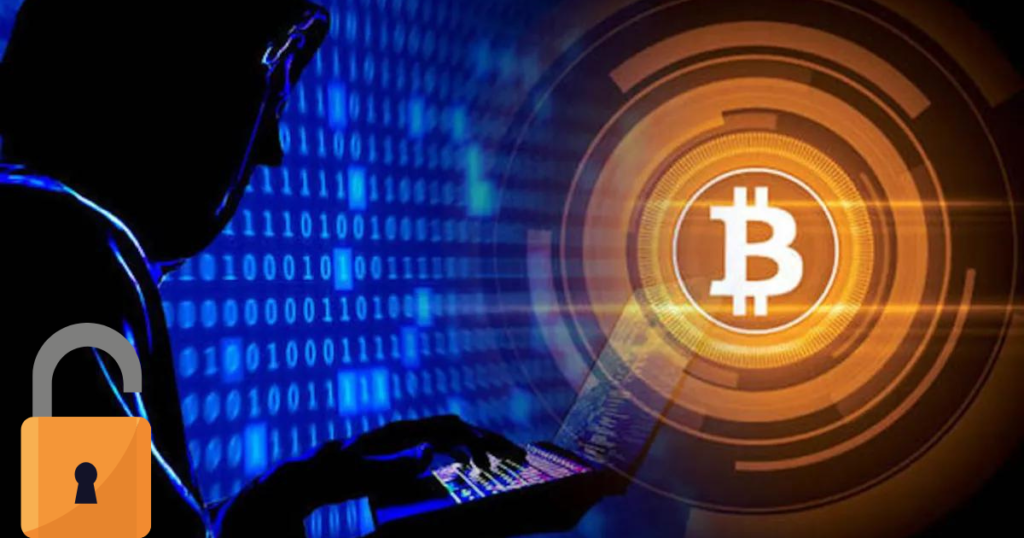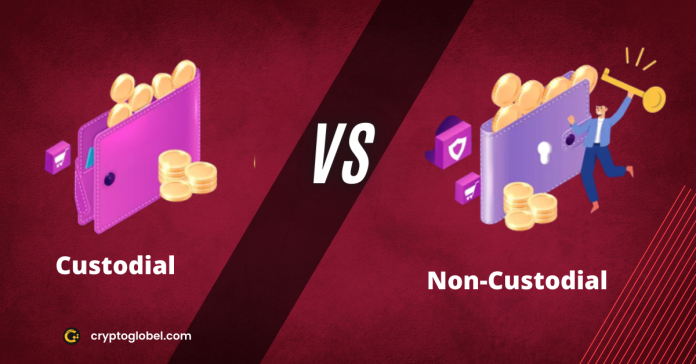Private keys are held by centralized exchanges or other third parties in custodial wallets, which function somewhat like banks in that they have control over your money. Only you have control over your money in non-custodial wallets, so they are under the owner’s control. Therefore, we will compare custodial and non custodial wallets in this article.
Should I keep my money in my wallet or should I exchange it, you must be asking yourself. I’ll answer your question and I’ll give a quick explanation of crypto wallets, custodial vs non custodial wallets.
What is a crypto wallet?
A cryptocurrency wallet is a physical device or software for keeping private and public keys that enable a person to access store and transfer cryptocurrencies.
Crypto wallets exist in different forms such as an application web extension or physical devices such as USB. Digital addresses found in cryptocurrency wallets allow for the sending and receiving of tokens and coins. The wallet addresses composed of numbers and letters are unique so that no one can send the cryptocurrencies to the wrong person or the wrong organization. Also, a digital wallet has a private key that enables the owner to access his or her cryptocurrencies.
Related: How does a crypto wallet work? | Crypto Wallet Explained
Types of crypto wallets
You can select from a variety of cryptocurrency wallets. The broad categories of crypto wallets are custodial vs non custodial wallets, Hot crypto wallets, and Cold crypto wallets
Custodial wallet
With a custodial wallet, a third party controls it and has the wallet details such as private Keys. Such wallets exist on Crypto exchanges and other decentralized platforms. The disadvantage of such a wallet is that you lose the cryptocurrencies in case there is a security breach of the holding platform.
Non-custodial wallet
With a non custodial wallet, you are the only party that has the private case and has full control over it. However you need to safely keep the private keys in case the gadget that you are using may get damaged or lost, thus you would need to install the wallet on another device.

Custodial vs Non Custodial Wallets
Understanding the difference between what a custodial and a non-custodial wallet is can mean the difference in knowing exactly how secure your funds really are.
So a custodial wallet basically means you’re trusting a third party to access your funds. This could be Binance, Coinbase or Ftx, basically, you need to ask them permission in order to access your funds. While this can be less secure than a non-custodial wallet some people prefer it because it removes the responsibility of having to secure your own private keys because if you lose those private keys you will lose access to your funds.
The thing is that while using a custodial wallet you are in essence centralizing the decentralized currency. There are a number of examples of how a custodial wallet can be potentially a bad idea. For example, if the entity which you trust in order to access your funds goes bankrupt well that entity can prohibit you from accessing your funds.
A non-custodial wallet is the opposite you don’t need to trust a third party, you don’t need to trust another entity you become your own bank and you can access your funds without permission anywhere in the world anytime. However with great powers comes great responsibility as mentioned before you will be in charge of safeguarding your private keys, but if you lose these private keys you will lose your funds.
If you want to add an extra layer of security to your non-custodial wallet you might want to look into hardware wallets, where in order to have any kind of transaction you have to confirm it with your external device.
However, you should also know that you have to keep the private keys of that hardware wallet secure in the same way. Having a non-custodial wallet can be the safest option to keep your funds secure. Just remember not your keys, not your funds so stay safe out there and keep that secret phrase secure.
5 Differences between Custodial vs Non custodial Wallets
Only the wallet’s owner has control over a non-custodial wallet and custodial wallets are under the control of general authorities.
When a custodial wallet requests your data, a KYC is required however, a KYC is not required for non-custodial wallets.
Because KYC has been completed there, your funds can be recovered if you forget your password in custodial wallets, but in non-custodial wallets, if you forget your passwords or seed phrases you can’t recover your funds.
Although non-custodial wallets have a complex interface, they are a little more advanced and difficult to use than custodial wallets. Custodial wallets are easy to use and user-friendliness.
Non-custodial wallets are more secure and less vulnerable to hacking than custodial wallets.
Binance, Coinbase, FTX, Ku Coin, and Okex are examples of custodial wallets. Metamask and trust wallets are examples of non-custodial wallets.

Can wallets be hacked?
Remember that there is always a chance that someone could figure out your password and gain access if you don’t have control over your wallet or your keys. Someone could steal your phone, perform a sim swap, and take control of your two-factor authentication. Once they control your two-factor authentication, they can access your cryptocurrency and essentially do whatever they want. With a non-custodial wallet, getting hacked is always a possibility.
Which wallet you should use?
Custodial vs non custodial wallets: The major difference between the two types of wallets. In fact, I prefer non-custodial. The thought of someone having access to my tokens bothers me. I’ve said before that I am a long-term investor; I don’t buy and sell cryptocurrency frequently in an effort to scrounge a few pennies here and there. I invest in tokens that I believe have long-term potential and practical applications.
As a result, the concept of an exchange or a custodial wallet has the potential to act almost like a bank or the government intervening and seizing control of your assets. Since I object to this power, I advise holding all of your cryptocurrencies in a non-custodial wallet that only you control. This way, no one else will have access to them or be able to remove them from the wallet without your permission. Therefore, non-custodial is undoubtedly the best option.
Hot wallets and Cold Wallets

Hot wallet
This type of wallet functions when it is connected to the internet. In other words, private Keys exist on a web-based platform such as an exchange. A third party controls the functioning of the wallet and is responsible for its security. People access such wallets using mobile phones and computers through web browsers.
Cold wallet
A cold crypto wallet is a digital wallet that works offline. In other words, it stores important data such as private keys without using the internet. Hot paper wallets and crypto Hardware wallets are examples of cold wallets. You should securely keep your crypto Wallace address, because if another person gets it that he can access your wallet and your cryptocurrencies.

